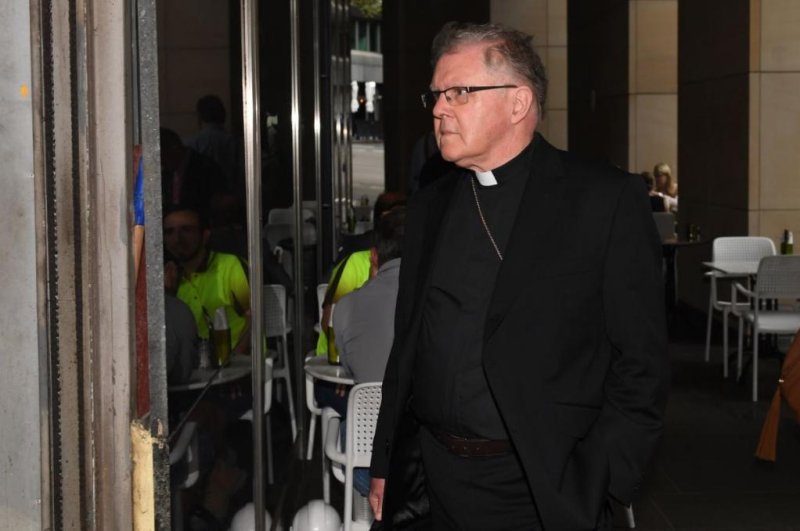Archbishop Mark Coleridge of Australia's Catholic Church rejected a recommendation on Friday by a government commission on child sex abuse that allegations of sex abuse heard in a the sacrament of confession be reported to authorities. File photo by Mark Miller/EPA-EFE
Aug. 31 (UPI) -- Australian Catholic Church leaders rejected a government proposal on Friday obligating priests to report child abuse accusations heard during confession.
The rejection is a response to a five-year government inquiry into suspected widespread sexual abuse of children by priests and religious brothers in Australia. The investigation is likely the most far-reaching of its kind ever undertaken in any country, The New York Times reported on Friday. The Australian Council of Bishops said it agreed with the overwhelming majority recommendations relating to the church. However, it held firm on the sanctity of secrecy during confession, a Catholic Church sacrament in which a petitioner, seeking forgiveness, privately confesses his or her sins to a priest.
On Friday, Archbishop Mark Coleridge, president of the Australian Catholic Bishops Conference, defended the church's rejection of the recommendation that the privacy of the confessional be compromised. Although the church response was conciliatory in tone and admitted "colossal failures" in protecting children, it defended a decision to reject a proposal making priests legally responsible if admissions of guilt heard during confession are not reported to government authorities.
"We believe the legislation abolishing priest privilege is based in fact on a lack of understanding of what actually happens in confession and tends to live in a purely hypothetical world," Coleridge said on Friday. "The bishops and leaders have the utmost respect for the law, but we believe this proposed law is ill-conceived and impractical. It won't make children safer and it will most likely undermine religious freedom."
The church response noted that the power to amend procedures regarding the privacy of confession rests only with the pope. Coleridge spoke during a three-day bishops' conference in Melbourne.
A separate report released on Friday by the Truth Justice and Healing Council, which represented Australia's bishops and 150 religious orders during the government probe, said priests should not be exempted from reporting child abuse allegations heard during a religious confession.
Greens Party members of Parliament quickly disagreed with the church's stance. In a statement, Sen. Rachel Siewart and Sen. David Shoebridge said the church's refusal to change the privacy of confession meant that it is "essential that all Australian governments immediately legislate to break the culture of secrecy in the church once and for all and put children before religion."
Siewart added, "It is deeply disappointing to see the Australian Council of Bishops so firmly stuck in the past and refusing to accept that the culture of secrecy has failed the children in its care. We cannot let an institution that has so appallingly failed children veto essential child safety reforms."
The investigation and the church also disagreed on a recommendation regarding mandatory celibacy for priests.
"Based on research we conclude that there is an elevated risk of child sexual abuse where compulsorily celibate male clergy or religious have privileged access to children," the commission said. It called celibacy an "unattainable ideal" for many clergy that left them leading double lives and contributed to a "culture of secrecy and hypocrisy" within the church.
Coleridge questioned if any research demonstrated that celibacy was a problem for clergy, and again said that any changes in the rules would come from the Vatican.
The commission also found that church institutions with women in decision-making positions had among the lowest rates of child sexual abuse while orders such as St John of God, with an almost exclusively male hierarchy, had allegations against 40 per cent of its members. It added that Sister Monica Cavanagh, president of Catholic Religious Australia, which represents 150 Australian religious orders, said the Catholic Church "still had a way to go" in recognizing "women and their potential to have a long-term effect on all the decisions that get made at church level."















